The Literature of
Exclusion
For Christina, with Love
The Literature of
Exclusion
Dada, Data, and the Threshold of
Electronic Literature
Andrew C. Wenaus
LEXINGTON BOOKS
Lanham Boulder New York London
Published by Lexington Books
An imprint of The Rowman & Littlefield Publishing Group, Inc.
4501 Forbes Boulevard, Suite 200, Lanham, Maryland 20706
www.rowman.com
6 Tinworth Street, London SE11 5AL, United Kingdom
Copyright 2021 The Rowman & Littlefield Publishing Group, Inc.
Interviews with Allison Parrish, B. R. Yeager, and Mike Bonsall used with permission.
Excerpts from Falling Out of Cars by Jeff Noon used with permission.
All rights reserved . No part of this book may be reproduced in any form or by any electronic or mechanical means, including information storage and retrieval systems, without written permission from the publisher, except by a reviewer who may quote passages in a review.
British Library Cataloguing in Publication Information Available
Library of Congress Cataloging-in-Publication Data Available
ISBN 978-1-7936-1463-6 (cloth : alk. paper)
ISBN 978-1-7936-1464-3 (electronic)
 The paper used in this publication meets the minimum requirements of American National Standard for Information SciencesPermanence of Paper for Printed Library Materials, ANSI/NISO Z39.48-1992.
The paper used in this publication meets the minimum requirements of American National Standard for Information SciencesPermanence of Paper for Printed Library Materials, ANSI/NISO Z39.48-1992.
Contents
This book has been in the works for quite some time. Originally planned as a short monograph with Zero Books in mind, it gradually took on a broader scope. I had been examining works of avant-garde science fiction narratives since 2007 as a graduate student at the University of Regina under the supervision of Dr. Nicholas Ruddick. I continued this work as a PhD candidate at the University of Western Ontario from 2009 to 2013 with Dr. Jonathan Boulter as my mentor and supervisor. During my studies, a pattern continually emerged: that the avant-garde and automated technologies are both inextricably linked to each other and modernism. Slowly, an idea rich enough for a book began to emerge. None of this would have been possible without my mentors guidance, so I would first like to thank Nick and Jonathan for their patience, astuteness, kindness, and support.
I would also like to thank Dr. Allan Pero and everyone at the Centre for the Study of Theory and Criticism. The graduate seminar, From Dada to Dank Memes, that I taught at the Centre in 2018 was one of the most fruitful and enjoyable intellectual semesters of my teaching career. So, I would like to thank the students from the seminar: Michael Bodkin, Austin Chisholm, Alex Harasymiw, Alex Hudecki, Dylan Hughes, Maxwell Hyett, Won Jeon, Jennifer Komorowski, Taylor McGoey, Vikram Panchmatia, Eric Shepperd, Jeremy Smith, and Andrew Woods. Discussions with this brilliant group had a major impact on this books content, and I cannot thank them enough.
I also extend my gratitude to Dr. Kathleen Fraser, Brock Eayrs, Shelley Clark, and the Writing Studies faculty at the University of Western Ontario for all their help, support, and advice over the past five years. Additionally, I extend my thanks to those I have come to know, befriend, and learn from at the University of Western Ontario and Fanshawe College: Drs. Peter Schwenger, Steven Bruhm, Michael Groden, Stephen Adams, Thy Phu, Manina Jones, Bryce Traister, Mark Stephenson, Edward Matthews, Richard Moll, Gabrielle Ceraldi, Tom Cull, Mark Feltham, Rasmus Simonsen, Michael Sloan, Nicholas McGinnis , Zeinab Mcheimech, Phil Glennie, Tim DeJong, Paul Frehner, and Christopher Keep.
A huge thanks also to Colin Herrick and his endless energy, creativity, and kindness for creating an original analog collage for the cover of this book.
Thanks to Lexington Books for publishing this book and to Dr. Graham Harman for reassuring me that Lexington Books was a great place for this title. I am also particularly thankful to Holly Buchanan at Lexington for her help with preparing this manuscript for publication.
Much love, respect, and thanks to Chuck Blazevic and Alice Hansen for their sincere friendship, music, and endlessly enjoyable conversations.
A massive thanks to my dear friend Andrew Weiss for the great conversations, long walks, and invaluable help polishing this book.
Thanks to Allison Parrish, Mike Bonsall, B. R. Yeager, Kenji Siratori, and Jeff Noon for generously sharing their insight and giving their time to discuss their work with me. I loved these correspondences and thank the authors a thousand times.
Endless gratitude to my parents, Daryl and Susan Wenaus, and in-laws, George and Linda Willatt, for all their support, encouragement, and love. Thanks to my sisters Sarah, Ila, Emma, and Stephanie for the great conversations, intelligence, jokes, music, and love. Special thanks to my brother William and my brother-from-another-mother Sandy Junek for the limitless thoughtfulness, broken bones, and love over the years.
Finally, I owe everything to Christina Willatt. Thank you, Christina, for reading my work, providing critical commentary, making music, and offering years of love and support. More than anyone else, you inspire everything I do.
Short sections of the book appeared in different versions in the following articles: Zero, zero, and zero: Becketts Endgame, Automation, and Zero-Player Games in Chiasma ; Twilight of Information Illiteracy: Kenji Siratoris Asemic Cyberpunk in Foundation ; Spells Out The Word of Itself, and Then Dispelling Itself: The Chaotics of Memory and The Ghost of the Novel in Jeff Noons Falling out of Cars in Journal of the Fantastic in the Arts ; and Coping with Zero to a Million Decimals: Mike Bonsalls J.G. Ballard Twitter Bots and Procedural Psychopathology in Deep Ends: The J.G. Ballard Anthology 2019 . Some passages from my dissertation Metaphor and Metanoia (2013) appear scattered throughout the book as well. For full references, please see the bibliography.
We are rapidly accelerating into the future, and, as novelist J. G. Ballard remarks, there are dangerous bends ahead. So, we need to make a choice: should we slow down or should we speed up? The past century indicates that the tendency is to accelerate, in general, and to accelerate the rift between human agency and autonomous technologies, in particular. Yet, this inclination is not necessarily new. As early as the thirteenth century, Catalan polymath and mystic Ramon Llull proposed a combinatorial system that aimed to evangelize Christianity using a careful set of definitions and rules that would guide a sequential argument through finite permutations. For Llull, this logical, algorithmic process would guide thought toward a prescribed truth: Christian doctrine. Over three centuries later, this dream was revived by German polymath Gottfried Wilhelm Leibniz. Seeking a combinatorial and algorithmic mode of reasoning, Leibniz, like Llull, advanced the proposition that the world is fully computable through finite analytical, algorithmic, and permutational possibilities. For Llull, the project was primarily epistemological and theological; for Leibniz, the dream of the combinatorial arts was to discover all things and create new ideas through elegant permutation. By the twentieth century, the dream of procedural reasoning, permuting, and calculating the truth became a reality in computer programming and autonomous, processual calculation. Today, these processes are ubiquitous and central to the functioning of supermodern society at all levels, from global systematics to the unconscious, but the implications of this new semiosis, however, remain ambivalent.

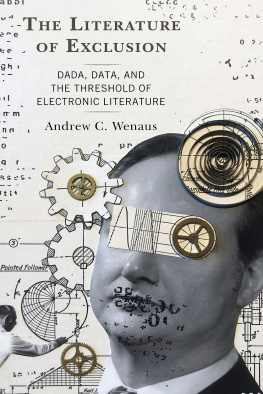
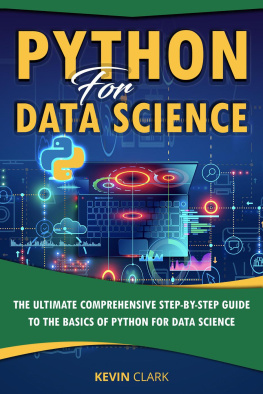

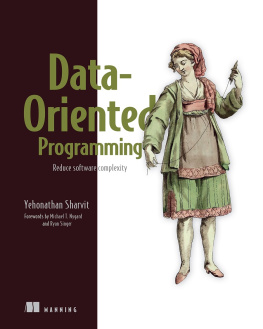

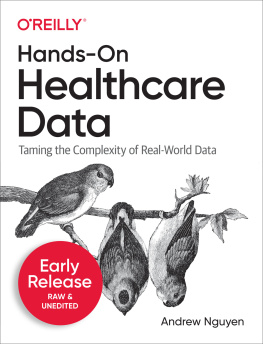
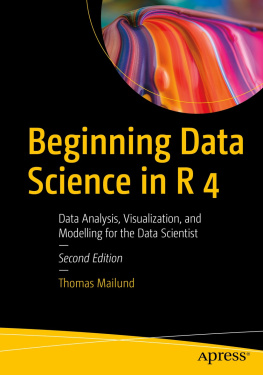
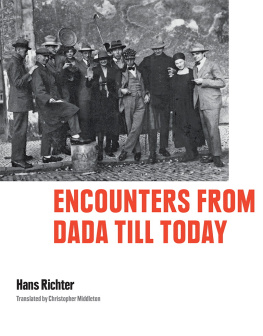
![Thomas Mailund [Thomas Mailund] - Beginning Data Science in R: Data Analysis, Visualization, and Modelling for the Data Scientist](/uploads/posts/book/119629/thumbs/thomas-mailund-thomas-mailund-beginning-data.jpg)
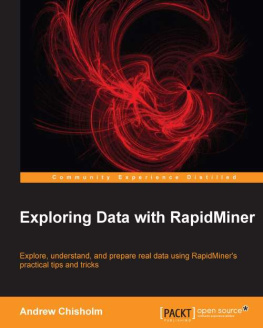
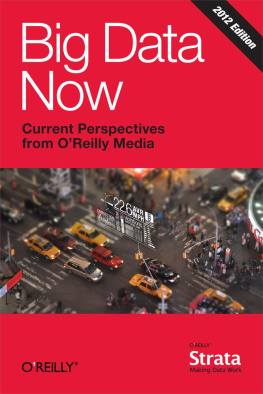
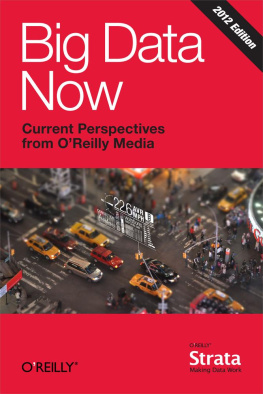

 The paper used in this publication meets the minimum requirements of American National Standard for Information SciencesPermanence of Paper for Printed Library Materials, ANSI/NISO Z39.48-1992.
The paper used in this publication meets the minimum requirements of American National Standard for Information SciencesPermanence of Paper for Printed Library Materials, ANSI/NISO Z39.48-1992.